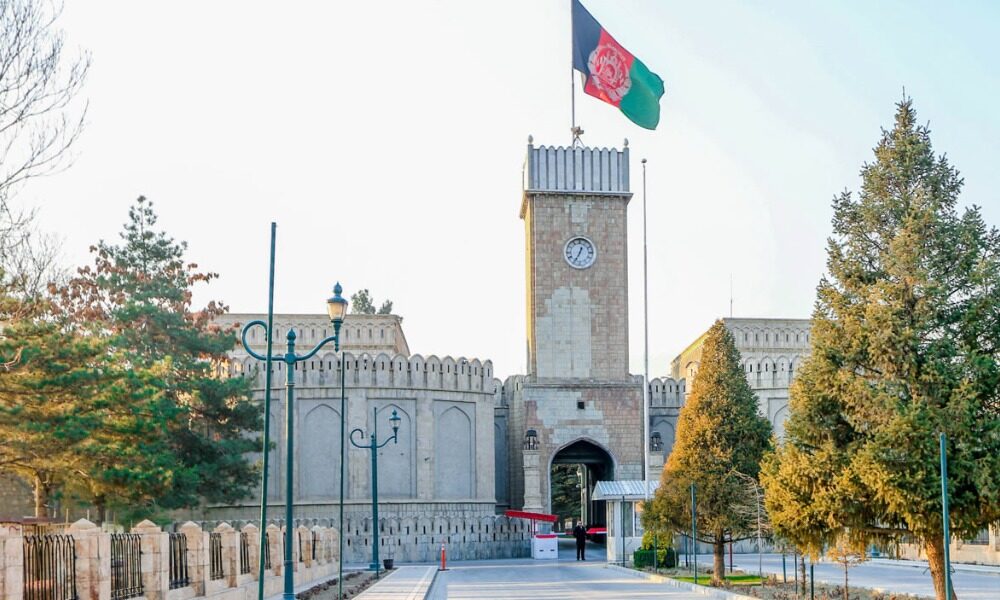In the last three years of the republic, I served in the Administrative Office of the President, with close access to the circulation of key correspondence and to strategic meetings. This is not a memoir of feelings; it is a description of patterns I experienced: Ashraf Ghani was a “micromanager,” not a leader. The difference showed in crisis.
Ghani liked details. In itself that isn’t bad, but when a president personally drafts three options for the title of an internal memo and pauses over every word, the decision-making apparatus slows down. In economic and administrative commissions, I repeatedly saw million-afghani and thousand-afghani files land side by side on the desk, and his attention lingered on both the same. In the procurement commission, meeting time sometimes went into unpacking sub-clauses of small contracts; in those same days, vital files, instead of being concluded, were pushed to the next session. The cause wasn’t accidental; it was the president’s need for control: he kept the details to himself, ministers and deputies lacked authority, and urgent decisions were delayed.
A presidency is for running a country, not for running an office. For every second- and third-tier appointment we drafted a “decision memo” that went straight to the Arg. A minister wanted to replace a director in his ministry, but the list had to pass through many hands and, in the end, be settled by the president himself. The result? Even directors weren’t answerable to their ministers, and ministers didn’t feel responsible for them. In review sessions I heard this line again and again: “We are awaiting guidance from the Arg.” Distant, granular “guidance” had replaced clear, proximate authority.
In the document flow of the Administrative Office, texts were routinely stamped “return for correction/completion” and sent back to the origin. First drafts were rarely accepted. The president’s margin notes were precise and plentiful; sometimes useful, but often slowing. Once, for a three-paragraph announcement of an appointment, we were made to revise it four times; the dispute was over whether to write “is appointed” or “is introduced.” When you get stuck at the level of words like this, there is no mental energy left for strategy.
The electoral crisis of September 28, 2019 to February 18, 2020 dragged on. In those days, instead of delegating part of political management to a “transition management cell,” the Arg pulled everything into itself. After the parallel inaugurations on March 9, 2020, we busied ourselves not with mending the split but with building parallel institutions: new committees, new councils, new deputyships—each with overlapping mandates. This parallelism only cluttered the surface; it didn’t untie the knot, because the center of decision-making stayed where it always was: on the president’s desk.
When the Doha Agreement was signed on February 29, 2020, the message on the stage changed. From April 14, 2021 onward, when the news of a definitive withdrawal arrived, we in the Administrative Office expected a redesign of routines: concentration of decisions, clear delegation, and a short chain of command for hard days. Nothing like that came. The usual long meetings continued; the agenda changed, but the way of working did not. Reports from the provinces would arrive, yet the language of the meeting was still bureaucratic: “It is proposed that a committee be formed,” “The next decision is deferred to the next session.” Instead of crisis language, the language of paper-shuffling took over.
Ghani believed in information and data; charts and tables were always on the table. But the gap between data and reality widens when “filtering” increases. The close circle fed him the more optimistic narratives; discordant reports arrived late or were read at the end of the meeting. More than once we brought notes from the provinces with bold lines saying “The chain of command is loose”; the answer was, “A comprehensive plan is underway.” The plans were fine, but time was ahead of them.
The president’s manner of speech also mattered. At times sharp, but mostly one-way. In small rooms, when he asked a mid-level official, “Do you have an opinion, or are you carrying a message?”, the official chose the safe path: carry the message. Gradually the level of discussion falls; no one dares say, “This path won’t work.” In an education policy meeting, a director reminded us that in a certain province, female teachers were not going to school; the response was, “The system must signal power, not retreat.” True as a sentence, but power sends a signal only when execution stands behind it; when execution is thin, the signal turns into a mirage.
In the security appointments of spring and summer 2021, reshuffles came one after another. In the Administrative Office we wrote decrees, rescinded them, and wrote new ones. Every fresh decree means a fresh learning curve, fresh networking, and weakened prior responsibility. When the chain of command shakes every two weeks, it cannot inject confidence into the field. At the same time, the president interfered in the minutiae of appointments—not necessarily by direct calls, but through “considerations” passed from office to office. We knew these considerations limited ministers’ authority and blurred accountability.
Ghani believed in “control from the center.” His core claim was, “If the center is strong, the periphery will be orderly.” But in Afghanistan, the periphery comes first; if the periphery is not satisfied, the center produces only the image of order. On May 17, 2020, a political agreement was signed, yet instead of giving breathing room to intermediary networks and local actors, centralization increased again. In the Administrative Office we produced more letters and memos than ever, but “turning paper into power” never happened.
In the days close to the fall, the mood in the Arg was heavy. Minutes grew shorter but not clearer. Simple questions went unanswered: if Kabul destabilizes quickly, who commands? where do we gather? what framework for a managed transition is ready? These questions were either not raised at all, or when they were, the answers were mostly generic: “Coordination is underway.”
Then August 15, 2021 arrived and the president left the country; that was not merely a personal decision, it was the outcome of years of power monopolized at the center: pulling authority into the presidency, distrusting ministries and institutions, and shortening the chain of command to the close circle.
I don’t judge intentions; calling someone “corrupt” or “clean” is easy, but it doesn’t help understanding. My point is this: management is different from control. Control means everything passes through a single point; management means multiple points can decide and answer. Ghani was a point of control, not a management network. On the day of need, there was no network to share the weight of the crisis.
If I were to sum up in a few sentences: Ashraf Ghani built organizations but did not organize; he added structure but did not grant authority. In peacetime, perhaps the cost of this method was only delays in programs; in crisis, the cost was collapse. In the Administrative Office we just produced more paper every day. That ratio is the story of the Arg in those years.
Today I write not for revenge but to learn. If one day a state is to stand again, it must move past this fundamental mistake: the president must be the leader of a network, not the manager of everything. He should take the big decisions himself, but entrust small authority and accountability; keep meetings short and clear; align information with the voice from the field; and in crisis, build a short, transparent chain of command. Without these, any Arg sooner or later turns into a room full of paper from whose window the fall is seen—and nothing can be done.







